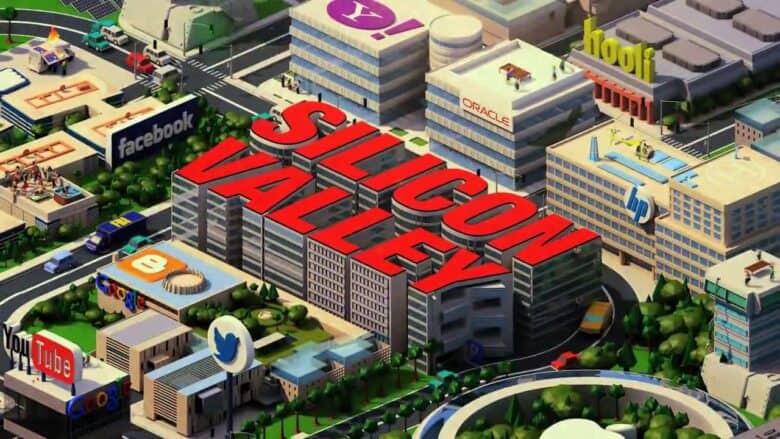Silicon Valley
As I travelled Silicon Valley and met with a lot of people this spring, I always had the question in mind, what Swiss organizations and entrepreneurs can learn from the disruptors and innovators in the West.
Among many conversations with people from Facebook, Apple, Google, IDEO, Plug n Play, Stanford and local start-ups such as Pied Piper, it has been my pleasure to talk to Lukas Peter, Head of Swisscom's Silicon Valley outpost. The outpost builds bridges between Switzerland and the Bay Area, serves as a trend spotter and as a home base for Swisscom Ventures. Who better to talk to about what Swiss SME can learn from Silicon Valley than Lukas?
During my conversation with Lukas I tapped into his knowledge of how the people and organizations in the Californian innovation hotspot operate and what (Swiss) SME can take-away from it.
It's been a very fruitful conversation as you can tell when you listen to this episode of the Sparkr Podcast on iTunes or Soundcloud.
Why is Silicon Valley successful?
Five Silver Bullets for Success: Learnings from Silicon Valley for Companies
For all those of you who don't want to take the time to listen to the conversation - or who don't understand Swiss German - I summed up my findings from the conversation with Lukas as well as my entire Silicon Valley trip in the following top 5 take-aways.
Innovation, disruption or digitalization are buzzwords that can mean a lot of things. But no matter how we define these terms, there are a couple of silver bullets that are relevant for everyone who wants to succeed in the future:
1. Mindset and Culture
Innovation is not promoted simply by coloring the walls and installing a ping pong table in your facilities. Innovation strongly correlates with a specific mindset and culture - and getting this right takes a lot of effort, time and support from top management. That's why it's so important to start caring about the right mindset from the beginning.
Innovation comes mostly from the software or operating system (your mindset), not the hardware (pseudo playful office spaces). I dedicated a whole interview on that subject with Timo from Facebook. Check it out here. Some of the future episodes of the Sparkr Podcast will also discuss mindsets and culture. So subscribe to the podcast and don't miss an episode. Or subscribe to the Sparkr Newsletter for future updates. That said:
2. Think and Act in Ecosystems
The solutions for new challenges and opportunities are not to be found in isolated silos or departments but in the remix of people and ideas. Spark your organization's potential by bringing all your assets together in an vivid ecosystem. Don't keep them apart with rigid company structures. In addition:
3. Open Up
Collaborate and share (!) with external challengers and contributors. This could be start-ups, universities, accelerators, co-working spaces, other companies along your value chain or simply freelancers. Let their influences and thought processes enrich yours and vice versa. It's not just about 'best practices', but 'next practices'.
Also take advantage of their flexibility. They are ideal partners for coming up with and implementing fresh ideas and conducting experiments. Together with external partners you can produce quick wins, test your assumptions and discover blind spots you might have had for years. Look for partners who are willing to get their hands dirty with you. Most of the time you don't need yet another paper or study. "Start by starting", as Timo says from Facebook in episode #2 of the Sparkr Podcast.
I have an example for you: After an idea-creation workshop, Sparkr and the Swiss NPO terre des hommes schweiz teamed up to conduct a chatbot experiment for gaining first hand experience with this new user interface. Trying out and testing ideas is important because:
4. Quality Follows Quantity
Conducting numerous cheap and fast experiments generates great value for your company. Innovation is more of a statistical effect than a eureka moment. Of 1000 experiments, 1 will be your next breakthrough. So go through the 999 others quickly.
To be able to test as many ideas as possible you have to do at least the following three things:
1) Mitigate risk and empower people
Create an environment where taking risks and trying out new ideas doesn't hurt anybody and where miss-steps are rather encouraged than punished. Are you working in an environment where somebody who has made a couple of mistakes because she wants to take leaps still has the chance to be promoted?
2) Operate fast
That means you need to focus on a specific aspect of a product or service instead of trying to build this huge new product that takes months or even years to develop. Remember this metaphor: To find out whether your customers want to get from point A to point B, you don't have to build a Ferrari. Give them a skateboard and that's enough to find out whether your customers actually want to get from A to B.
3) Install short feedback loops
In addition to developing a product or service, you have to dedicate an equal amount of attention on building a set up where co-workers and clients can easily give real feedback. That way you speed up the evolutionary process of your product or service and therewith make it stronger. Think of it that way: Don't just design the product. Also think about how to design the factory that builds the product.
Note that the final product or service will probably not look like your initial idea - which is a good thing as long as real feedback has evoked the transformation and not only a single product managers' opinion.
5. Kill False Modesty
I saw many start-ups pitching during my stay in Silicon Valley and they weren't 'better' than Swiss SME and start-ups per se. A huge factor for Silicon Valley's success is the sheer amount of entrepreneurs who are willing to try - and the investors who are willing to back up all these experiments.
That leads me to my bonus bullet for Swiss SME: Kill any false modesty and be aware of your ability to be world class. Think, act and sell big and global while keeping the Swiss sense for high quality. Don't just take it from me. Steve Jobs himself indicated that as well. Don't believe me? Watch.
Your Thoughts?
Thanks for reading. I'd be happy to hear your thoughts and additions to these five silver bullets. Simply drop me an email or connect on the socials.
More Episodes of the Sparkr Podcast
You find all the Sparkr Podcast Episodes here and you can subscribe to the podcast on Apple Podcast, Spotify, Soundcloud or wherever you listen to your favorite shows.
#23 Wolfgang Beltracchi über Kunst, NFTs und einen 450 Millionen Dollar Fake (German)
#22 Batterien - Schlüsseltechnologie für die Nachhaltigkeitsrevolution (German)
#21 Frugal Innovation - a powerful mindset for a better economy (English)
#20 Innovation in der Verwaltung - Hinter den Kulissen des Corona Rettungsprogramms (German)
#18 Self-management methods and productivity tips for less stress (English)
#17 Sustainability - Insights from a fascinating researcher and social entrepreneur (English)
#15 Resilienz und Widerstandskraft stärken mit Erkenntnissen aus der Stressforschung (text: English, audio: German)
#14 The Future of Work and Open Innovation - a Conversation with Stanford Professor Pamela Hinds (English)
#12 Künstliche Intelligenz und die Folgen für Mensch, Gesellschaft und Wirtschaft mit Thomas Ramge (text: English, audio: German)
#11 Jean-Claude Biver über wahren Erfolg, echten Luxus und was wir von Hippies lernen können (German)
#10 Executive Briefing on 5G (English)
#3 Lukas Peter from Swisscom about what (Swiss) SME can learn from Silicon Valley (text: English, audio: German)
#2 Timo Pelz from Facebook about the importance of corporate culture (English)
#1 Ottmar Hitzfeld about leadership (German)




8 Gedanken zu “What Can (Swiss) SME Learn from Silicon Valley? (Sparkr Podcast #3)”
Die Kommentare sind geschlossen.